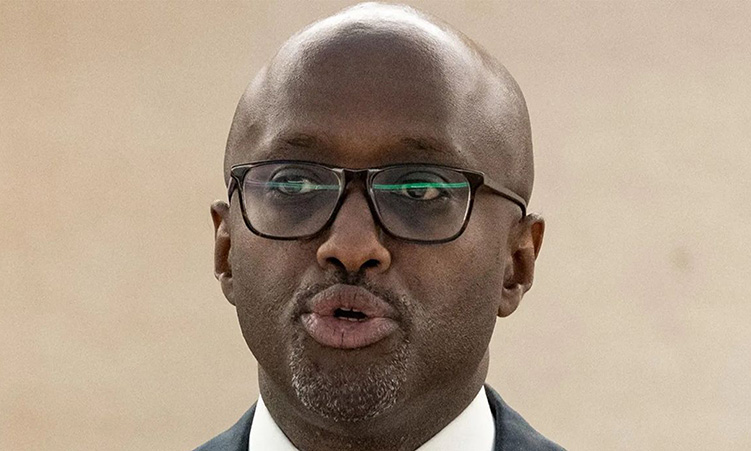EFFORTS to curb HIV-AIDS have reached “a critical moment”, the newly released World Health Report for 2004 states.
However, the report, which is yet to be launched in Namibia, points out that more money, more political will and more attention is now being paid to the killer disease than ever before. “And yet, more people than ever are dying of AIDS and becoming infected with HIV.By using HIV treatment programs to strengthen existing prevention programs and improve health systems, the international community has a unique opportunity to change the course of history,” says the report, titled ‘Changing History’.It says that the World Health Organisation, UNAIDS and partners are implementing a comprehensive HIV-AIDS strategy which links prevention, treatment, care and support for people living with the virus.”Until now, treatment has been the most neglected element in most developing countries,” it notes.Yet among all possible HIV-related interventions, the report says, it is treatment that can most effectively boost prevention efforts and in turn drive the strengthening of health systems and enable poor countries to protect people from a wide range of health threats.”At long last, global investment in health – and particularly in the fight against HIV-AIDS – is on the rise.It brings a welcome and long overdue improvement in the prospects for controlling the worst global epidemic in several centuries.The challenge now is to co-ordinate all our efforts and to ensure that this money benefits the people who need it most,” says Jong-wook Lee, Director General of the WHO.The report says vital resources have now been pledged and must be used swiftly and in a co-ordinated way to prolong the lives of millions of children, women and men who will otherwise soon die.It quotes UNAIDS Executive Director Dr Peter Piot as saying:”Scaling up effective HIV treatment and prevention programmes is the best strategy to save lives and keep future generations HIV-free.”The report expresses the view that the delivery of AIDS treatment and prevention also offers the chance to build up health systems in the poorest countries and provide health benefits for all.”Future generations will judge our era in large part by our response to the AIDS pandemic.By tackling it decisively we will also be building health systems that can meet the health needs of today and tomorrow.This is an historic opportunity we cannot afford to miss,” said Lee.In September 2003, WHO, UNAIDS and the Global Fund to Fight AIDS, Tuberculosis and Malaria declared lack of access to treatment with anti-retroviral medicines a global health emergency.They launched an effort to provide three million people in developing countries with anti-retroviral therapy by the end of 2005 – the “3 by 5″ initiative.By March this year, 48 of the countries with the highest burden of HIV-AIDS had expressed their commitment to rapid treatment expansion and requested technical co-operation in designing and implementing scale-up programmes.”And yet, more people than ever are dying of AIDS and becoming infected with HIV.By using HIV treatment programs to strengthen existing prevention programs and improve health systems, the international community has a unique opportunity to change the course of history,” says the report, titled ‘Changing History’.It says that the World Health Organisation, UNAIDS and partners are implementing a comprehensive HIV-AIDS strategy which links prevention, treatment, care and support for people living with the virus.”Until now, treatment has been the most neglected element in most developing countries,” it notes.Yet among all possible HIV-related interventions, the report says, it is treatment that can most effectively boost prevention efforts and in turn drive the strengthening of health systems and enable poor countries to protect people from a wide range of health threats.”At long last, global investment in health – and particularly in the fight against HIV-AIDS – is on the rise.It brings a welcome and long overdue improvement in the prospects for controlling the worst global epidemic in several centuries.The challenge now is to co-ordinate all our efforts and to ensure that this money benefits the people who need it most,” says Jong-wook Lee, Director General of the WHO.The report says vital resources have now been pledged and must be used swiftly and in a co-ordinated way to prolong the lives of millions of children, women and men who will otherwise soon die.It quotes UNAIDS Executive Director Dr Peter Piot as saying:”Scaling up effective HIV treatment and prevention programmes is the best strategy to save lives and keep future generations HIV-free.”The report expresses the view that the delivery of AIDS treatment and prevention also offers the chance to build up health systems in the poorest countries and provide health benefits for all.”Future generations will judge our era in large part by our response to the AIDS pandemic.By tackling it decisively we will also be building health systems that can meet the health needs of today and tomorrow.This is an historic opportunity we cannot afford to miss,” said Lee.In September 2003, WHO, UNAIDS and the Global Fund to Fight AIDS, Tuberculosis and Malaria declared lack of access to treatment with anti-retroviral medicines a global health emergency.They launched an effort to provide three million people in developing countries with anti-retroviral therapy by the end of 2005 – the “3 by 5” initiative.By March this year, 48 of the countries with the highest burden of HIV-AIDS had expressed their commitment to rapid treatment expansion and requested technical co-operation in designing and implementing scale-up programmes.
Stay informed with The Namibian – your source for credible journalism. Get in-depth reporting and opinions for
only N$85 a month. Invest in journalism, invest in democracy –
Subscribe Now!










